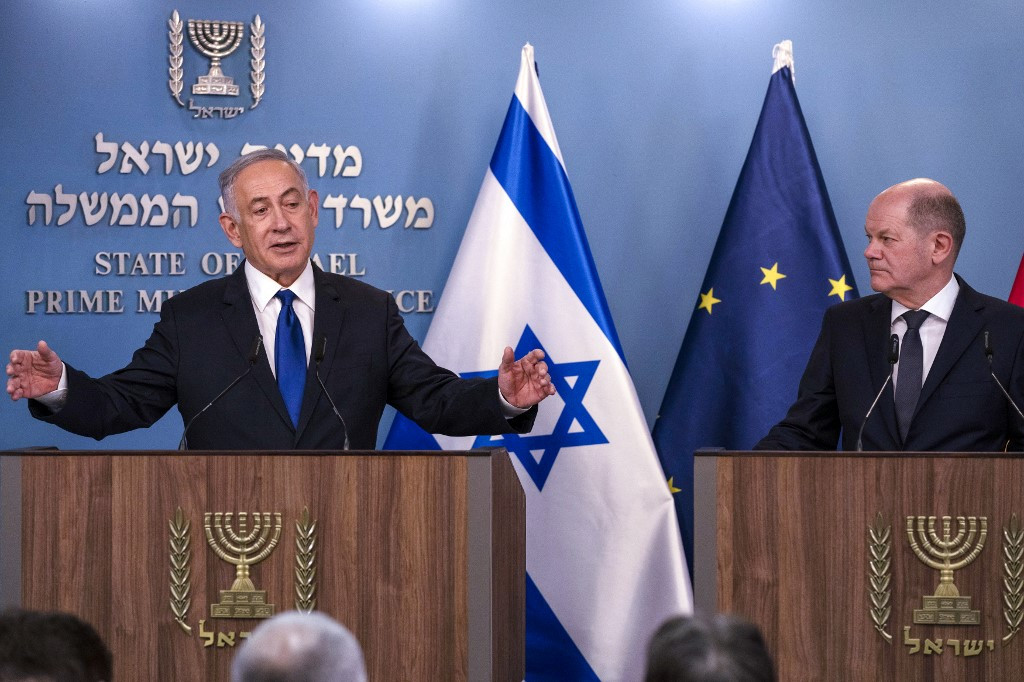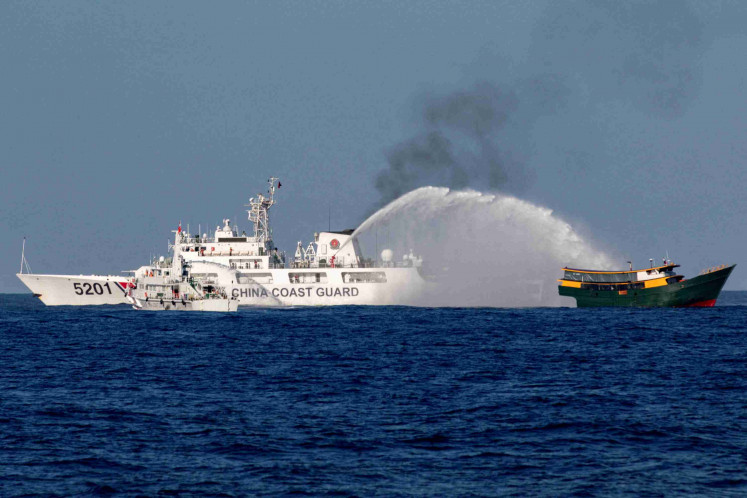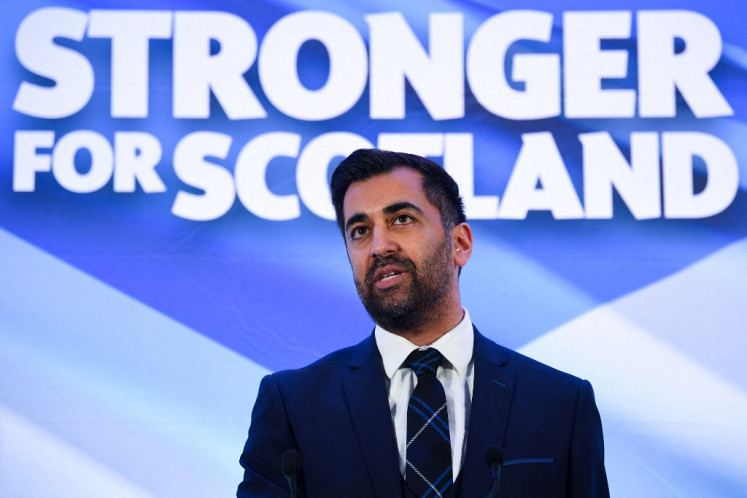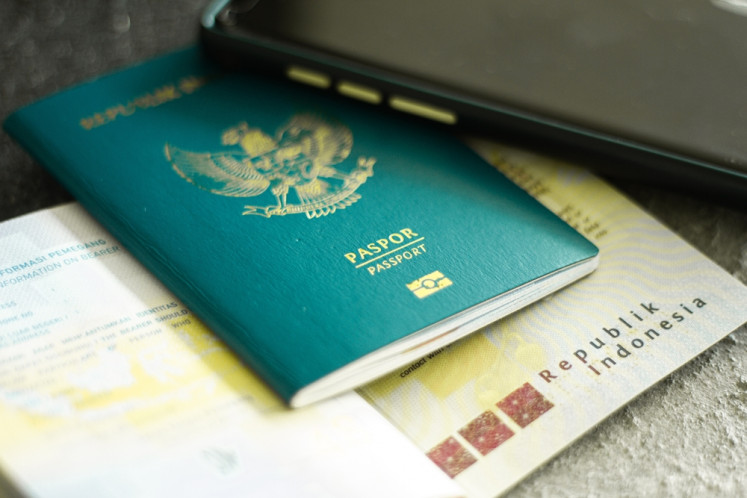Israel reserves 'right to protect itself' after Iran attack: Netanyahu
Iran launched more than 300 drones and missiles at Israel over the weekend in an attack that caused little damage after most of the projectiles were intercepted.
Change Size
 Israeli Prime Minister Benjamin Netanyahu (left) speaks during a joint press conference with German Chancellor Olaf Scholz following their meeting in Jerusalem on March 17, 2024. (AFP/Leo Correa)
Israeli Prime Minister Benjamin Netanyahu (left) speaks during a joint press conference with German Chancellor Olaf Scholz following their meeting in Jerusalem on March 17, 2024. (AFP/Leo Correa)
I
srael's Prime Minister Benjamin Netanyahu said his country reserved the right to protect itself after Iran's unprecedented attack, and that it alone would decide how to do so.
Iran launched more than 300 drones and missiles at Israel over the weekend in an attack that caused little damage after most of the projectiles were intercepted.
The Israeli military has vowed to respond, prompting a diplomatic flurry aimed at calming the Middle East.
Israel's allies in Washington and Brussels have pledged to ramp up sanctions against Iran, while British Foreign Secretary David Cameron and his German counterpart Annalena Baerbock became the first Western envoys to visit Israel since the attack.
Netanyahu told the visiting ministers that Israel "will reserve the right to protect itself," his office said.
The pair offered "all kinds of suggestions and advice" during a meeting, Netanyahu said. "However, I would also like to clarify: we will make our decisions ourselves."
For his part, Cameron said "we're very anxious to avoid escalation and to say to our friends in Israel: It's a time to think with head as well as heart."
Baerbock emphasised that "the region must not slide into a situation whose outcome is completely unpredictable."
Tehran has vowed to hit back if its arch-foe Israel responds to the Saturday attack, which itself was launched after a deadly strike on Iran's Damascus consulate building earlier this month that was widely blamed on Israel.
Citing three unnamed Israeli sources, ABC News reported on Thursday that "Israel prepared for and then aborted retaliatory strikes against Iran on at least two nights this past week."
Among the range of possible reactions considered by the Israeli war cabinet were options to attack Iranian proxies elsewhere in the region or to conduct a cyberattack, the sources told ABC.
Meanwhile, the war in Gaza that has sent regional tensions soaring continued unabated with efforts at a truce appearing to flounder, as key mediator Qatar said it was re-evaluating its role in the stalling negotiations.
Iran's President Ebrahim Raisi warned after the attack of "a fierce and severe response" to any retaliation, and on Wednesday his country celebrated its annual Army Day with a parade featuring various attack drones and long-range missiles.
Also on Wednesday, Tehran-backed Hezbollah wounded 14 soldiers, six seriously, in a strike on northern Israel, the Israeli army said.
This was the third day in a row the Lebanese militant group had wounded people in Israel, amid near-daily cross-border fire since the start of the Israel-Hamas war.
Later, Israel hit targets in eastern Lebanon, far from the border, a Hezbollah source told AFP.
Israel's top ally the United States has made clear it won't join any attack on Iran, vowing instead to level more sanctions against the country's missile and drone programme, its Islamic Revolutionary Guard Corps and the Iranian defence ministry.
Nevertheless, on Wednesday US Republicans unveiled a bill that would provide $26 billion of military aid to Israel which appeared to have White House backing.
EU foreign policy chief Josep Borrell said Brussels was also working to expand sanctions against Iran, including its supply of drones and other weapons to Russia and to proxy groups around the Middle East.
French President Emmanuel Macron said the EU and its allies had a "duty... to expand these sanctions", while Baerbock said Berlin backed further sanctions.
Cameron also urged the G7 to adopt new "coordinated sanctions against Iran," ahead of a meeting with counterparts from the Western-led grouping in Italy.








